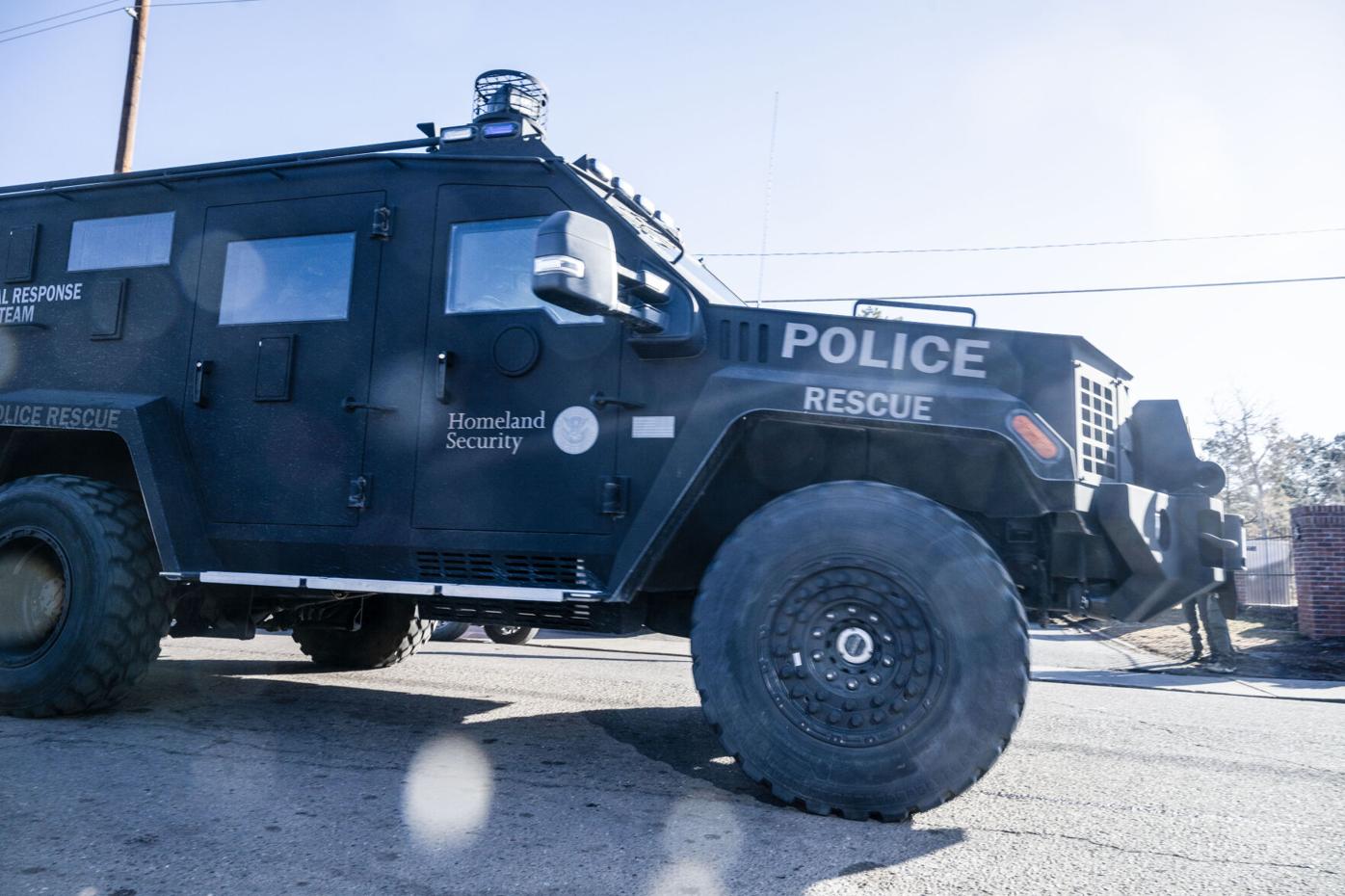‘For maximum political effect’: Mesa County sheriff says Phil Weiser’s lawsuit ‘demoralizing’
The decision by the Colorado Attorney General’s Office to sue a deputy is “demoralizing,” Mesa County’s sheriff said on Wednesday, arguing it sends the message that the state’s top law enforcement office is selectively enforcing a state law barring cooperation with federal immigration agents — and for “maximum political effect.”
Sheriff Todd Rowell said Attorney General Phil Weiser knew of officers from another law enforcement agency who also shared information with U.S. Immigration and Customs Enforcement and faced no consequences, while his deputy is the subject of a lawsuit from Weiser’s office.
“As it stands, the lawsuit filed by the Attorney General’s Office sends a demoralizing message to law enforcement officers across Colorado — that the law may be wielded selectively and publicly for maximum political effect rather than applied fairly and consistently,” Rowell said in a news release.
In a statement, Weiser’s office acknowledged getting information about other potential violations by other agencies — and it is investigating those, as well.
“The attorney general was presented with facts that showed blatant violations of state law. As the attorney general said last week, other law enforcement agencies are under investigation for a pattern or practice of civil rights violations,” Weiser’s office said in a statement to The Denver Gazette. “The Mesa County sheriff has a job to do to investigate and discipline his employees. The attorney general has a duty to enforce state laws and protect Coloradans and will continue to do so.”
When pressed for any update, Weiser’s office only said the inquiry is ongoing and it has nothing else to share for now.
In a statement, Colorado State Patrol Chief Matthew Packard confirmed that an administrative review by the attorney general of the State Patrol is underway. He reiterated that the State Patrol no longer shares information on a multi-jurisdiction Signal chat following the incident.
“We respect Mesa County Sheriff Rowell’s corrective actions, but believe his judgments regarding the Patrol are misinformed and premature. The Patrol remains committed to transparency in this process,” Packard said.
Weiser’s lawsuit alleges that Deputy Alexander Zwinck improperly shared information with ICE about a 19-year-old nursing student who was the subject of a traffic stop and later detained by federal agents.
The officer had shared the individual’s information with a Signal drug interdiction communication group, which included a number of local, state and federal law enforcement agencies that focus on the highways of western Colorado.
Weiser claimed that, by doing so, Zwinck broke Colorado laws that forbid Colorado state and local government employees from cooperating or sharing information for immigration enforcement purposes with federal agents.
In his statement, Rowell said he provided the Attorney General’s Office with an unredacted download of the group chat, which also showed Colorado State Patrol troopers “engaging in conduct similar to Deputy Zwinck’s” — that is, sharing personal identifying information with ICE.
“This was pointed out to the Attorney General’s staff with no substantive response provided,” the sheriff said, adding that Weiser should apply the law “equally to all law enforcement and government officials instead of making Deputy Zwinck an example.”
“This would include filing lawsuits and hosting press conferences for each state and local law enforcement officer in the group chat and other government officials who have violated SB 21-131 and SB 25-276,” the sheriff said, referring to the state laws barring cooperation with federal immigration agents.
The case of the Utah student’s detention had put yet another spotlight on Colorado’s immigration laws, which critics view as “sanctuary” policies that have handcuffed both local and federal agents. Their supporters have argued they are needed to keep the federal government from “commandeering limited state public safety capacity” for their own purposes and to preserve the trust between the police and communities they serve.
Rowell urged Weiser to drop the case against Zwinck and allow an internal discipline process and training to take place, effectively saying that officers across Colorado are still adjusting to the law.
In his statement, the Mesa County sheriff acknowledged that his office played a role in the sequence of events leading to the detention of Caroline Dias Goncalves, who came to the U.S. under a tourist visa when she was 7 and overstayed her visa about a decade ago.
“As Mesa County sheriff, I take full responsibility for this incident,” Rowell said, adding his office has well-established practices “limiting our involvement in immigration enforcement.”
His office’s administrative review of the incident highlighted the need for enhanced training and clarification of the “evolving legal responsibilities” under Senate Bill 25-276, the state law that expanded the prohibition against sharing information to ICE to employees of political subdivisions, such as counties.
“Based on our findings, the Mesa County Sheriff’s Office should not have had any role in the chain of events leading to Miss Dias-Goncalves’s detention, and I regret that this occurred. I apologize to Miss Dias-Goncalves,” the sheriff said.
Weiser’s office sued Zwinck before the Mesa County Sheriff’s Office could finish its administrative review, and that’s why he is “deeply disappointed” in the decision to litigate, Rowell said.
He added the Attorney General’s Office was well informed of the review’s timeline, yet he was given no notice that the lawsuit was coming.
He also reached out to Weiser on June 18 to brief him about the case and outline the steps to investigate the incident and how the sheriff’s office will ensure its policies and procedures abide by Colorado law, he said.
“Attorney General Weiser refused to speak with me, but I was able to meet with members of his staff,” he said.
Rowell also disclosed disciplinary actions against Zwinck and several other officers. Zwinck has been placed on unpaid leave for three weeks and will be reassigned to patrol duties.





